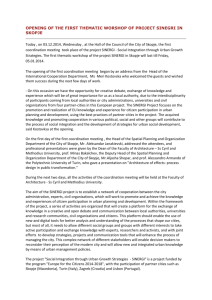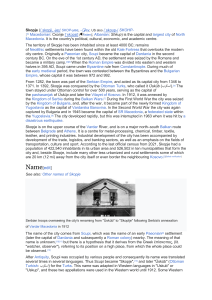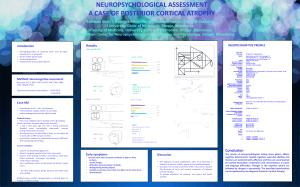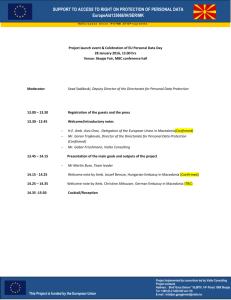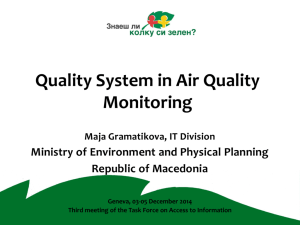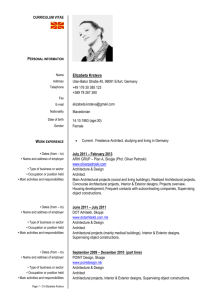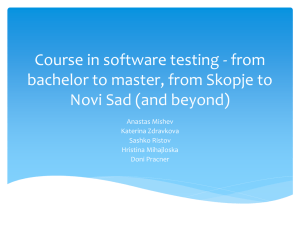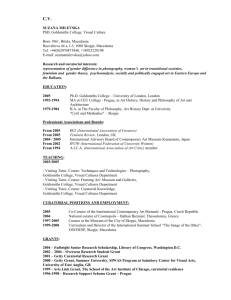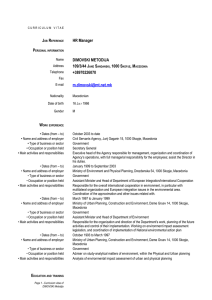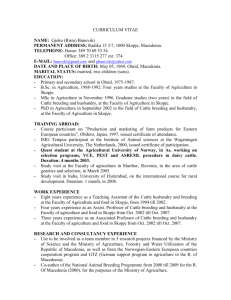Suzana Milevska: “Not Quite Bare Life”
advertisement
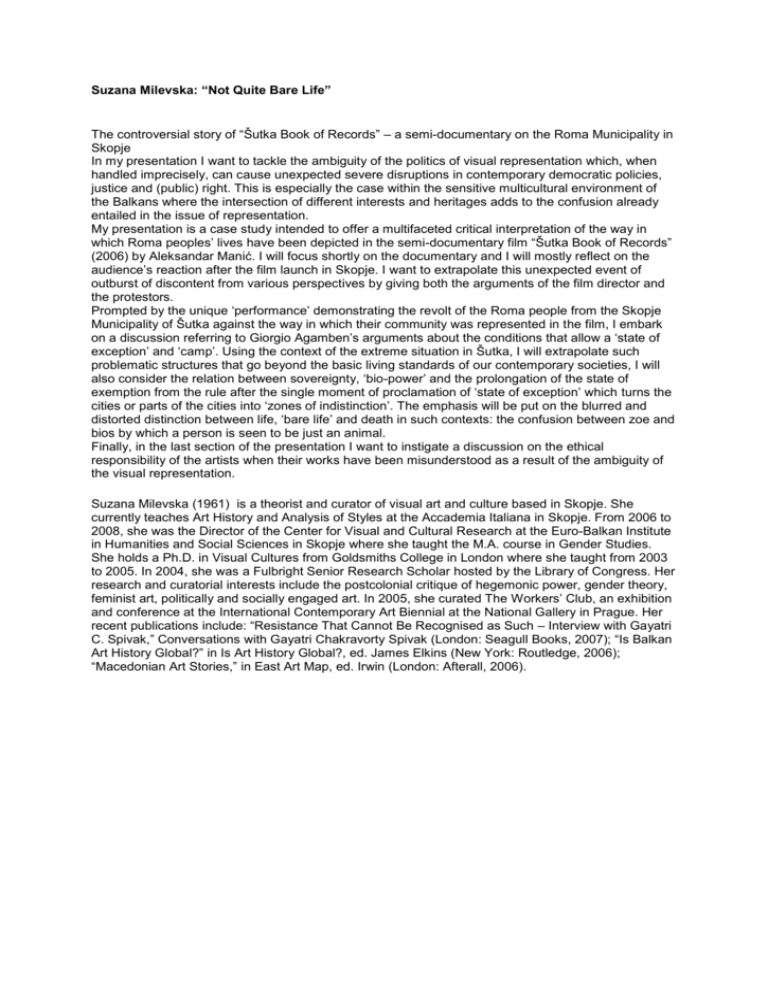
Suzana Milevska: “Not Quite Bare Life” The controversial story of “Šutka Book of Records” – a semi-documentary on the Roma Municipality in Skopje In my presentation I want to tackle the ambiguity of the politics of visual representation which, when handled imprecisely, can cause unexpected severe disruptions in contemporary democratic policies, justice and (public) right. This is especially the case within the sensitive multicultural environment of the Balkans where the intersection of different interests and heritages adds to the confusion already entailed in the issue of representation. My presentation is a case study intended to offer a multifaceted critical interpretation of the way in which Roma peoples’ lives have been depicted in the semi-documentary film “Šutka Book of Records” (2006) by Aleksandar Manić. I will focus shortly on the documentary and I will mostly reflect on the audience’s reaction after the film launch in Skopje. I want to extrapolate this unexpected event of outburst of discontent from various perspectives by giving both the arguments of the film director and the protestors. Prompted by the unique ‘performance’ demonstrating the revolt of the Roma people from the Skopje Municipality of Šutka against the way in which their community was represented in the film, I embark on a discussion referring to Giorgio Agamben’s arguments about the conditions that allow a ‘state of exception’ and ‘camp’. Using the context of the extreme situation in Šutka, I will extrapolate such problematic structures that go beyond the basic living standards of our contemporary societies, I will also consider the relation between sovereignty, ‘bio-power’ and the prolongation of the state of exemption from the rule after the single moment of proclamation of ‘state of exception’ which turns the cities or parts of the cities into ‘zones of indistinction’. The emphasis will be put on the blurred and distorted distinction between life, ‘bare life’ and death in such contexts: the confusion between zoe and bios by which a person is seen to be just an animal. Finally, in the last section of the presentation I want to instigate a discussion on the ethical responsibility of the artists when their works have been misunderstood as a result of the ambiguity of the visual representation. Suzana Milevska (1961) is a theorist and curator of visual art and culture based in Skopje. She currently teaches Art History and Analysis of Styles at the Accademia Italiana in Skopje. From 2006 to 2008, she was the Director of the Center for Visual and Cultural Research at the Euro-Balkan Institute in Humanities and Social Sciences in Skopje where she taught the M.A. course in Gender Studies. She holds a Ph.D. in Visual Cultures from Goldsmiths College in London where she taught from 2003 to 2005. In 2004, she was a Fulbright Senior Research Scholar hosted by the Library of Congress. Her research and curatorial interests include the postcolonial critique of hegemonic power, gender theory, feminist art, politically and socially engaged art. In 2005, she curated The Workers’ Club, an exhibition and conference at the International Contemporary Art Biennial at the National Gallery in Prague. Her recent publications include: “Resistance That Cannot Be Recognised as Such – Interview with Gayatri C. Spivak,” Conversations with Gayatri Chakravorty Spivak (London: Seagull Books, 2007); “Is Balkan Art History Global?” in Is Art History Global?, ed. James Elkins (New York: Routledge, 2006); “Macedonian Art Stories,” in East Art Map, ed. Irwin (London: Afterall, 2006).
